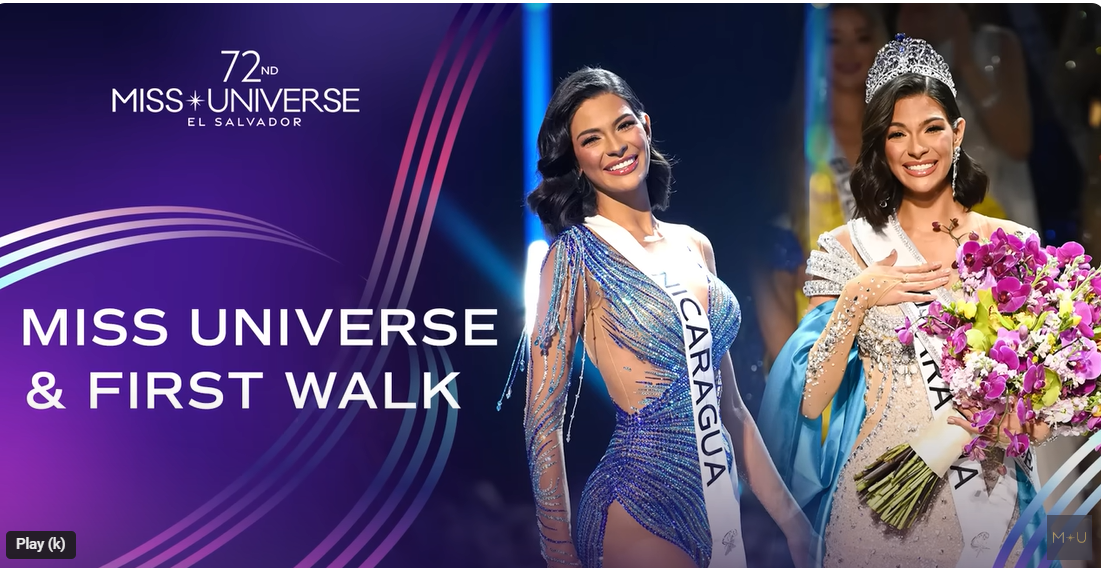Beauty pageants. Two words that conjure up a vision of an obsolete world when a woman’s principal asset was her looks and the standard of beauty was one-dimensionally Western and Caucasian.
The Miss Universe contest was held this past November 18 and once again it has revived the many controversies that revolve around it, prompting us to ask: how can such an archaic institution still survive?
The criticisms against beauty pageants in general are many: they objectify women and serve the male gaze; they impose unrealistic standards of beauty; they require women to display their bodies in sexualized ways; they dehumanize women by turning them into spectacle. And lastly, we question the relevance and value of beauty pageants in a society that is still striving for gender equality and where violence against women is rampant.
Thai entrepreneur Anne Jakrajutatip thought she had the solution to all the ills plaguing the Miss Universe contest and in 2022 her JKN Global Group acquired it. “I wanted to create something that was run by women for women—not something for men to ogle over,” she said.

Under Jakrajutatip’s leadership, Miss Universe is now run by an all-female executive staff and has only female hosts and in-person judges. There is only one hitch: Jakrajutatip is transgendered but officially still male.
Jakrajutatip turned the 2023 Miss Universe pageant into a historic event that aimed to short circuit all the criticisms in one fell swoop, showcasing the diversity and creativity of women from around the world.
Jakrajutatip’s Miss Universe reforms are not altogether new, but the popularity of the contest has fallen even further under JKN’s stewardship. Since acquiring Miss Universe last year, Jakrajutatip has broadened the contestant pool to include not only more transgendered “women,” two of whom—Portugal’s Marina Machete (who finished in the top 20) and the Netherlands’ Rikkie Kolle—competed this year, but also women up to age 28 and women who are married, divorced, or mothers. In a nod to the current epidemic of obesity and body positivity movements, a plus-size model also competed.
All these ideas seemed brilliant on paper, but they still added up to failure.
On November 8, just ten days before this year’s 72nd annual Miss Universe pageant, JKN Global filed for bankruptcy, following an 80 percent drop in its stock value over the past year, and after missing a September 1 deadline for a $12 million bond payment.
The many controversies surrounding the pageant in recent years certainly did not help. Last year’s competition was marred by allegations that its Miss USA subsidiary pageant was rigged in favor of R’Bonney Gabriel, an Asian woman, in a case of racial bias designed to assure that the winner would be nonwhite.

Another contestant, Miss Bolivia, was dethroned and removed from the pageant after publicly disparaging her competitors’ looks. A year earlier, a Miss USA vice president was removed from the organization after multiple former contestants accused him of sexual harassment. Still more contestants have complained about bullying and body shaming.
The world was not impressed with the innovations. A majority of countries sent no contestant this year, with only 84 participating. Miss Universe’s 2.4 million viewers worldwide in 2022 was its smallest television audience since records began; this year even less.

Further aggravating the situation, in 2023 there were severe legal repercussions associated both with the Miss Universe pageant and the Indonesian subsidiary that severely challenged the narrative that the changes introduced this year would bring more accountability and respect for the contestants.
Seven contestants from the Miss Universe Indonesia 2023 pageant filed police reports regarding incidents of sexual harassment from the pageant organizers. The complaints cited a “body check”, where contestants were instructed to remove their clothes and undergarments in front of half a dozen people, both men and women, inside a cramped room, despite being told that it was a fitting session for their pageant clothing. One contestant alleged that she was coerced into doing multiple poses and was made to open her legs while standing, and five of the contestants alleged that they were photographed without their consent while being naked.
An investigation was launched by the Indonesian government and the Miss Universe Organization, which led to the decision to sever ties with PT Capella Swastika Karya, the beauty company that runs the Miss Universe Indonesia pageant, and Poppy Capella, the organization’s national director.

Jakrajutatip’s group bought the pageant last year for just $20 million, but even that low valuation is doomed to plunge as the pageant’s attempts to redefine standards of beauty are in sharp conflict with its original vision and mission. The world has simply moved on and sexism remains blatantly obvious as sexism.
“Our universe must go on,” Jakrajutatip said in an Instagram post last week, downplaying the failed attempt to bring relevance to an institution whose cultural underpinnings started to die in 1969 with the birth of the Women’s Liberation Movement. It just took a while for it to take its last breath.












